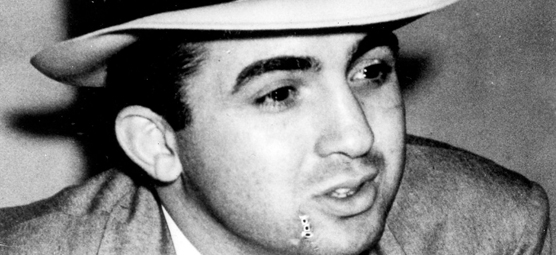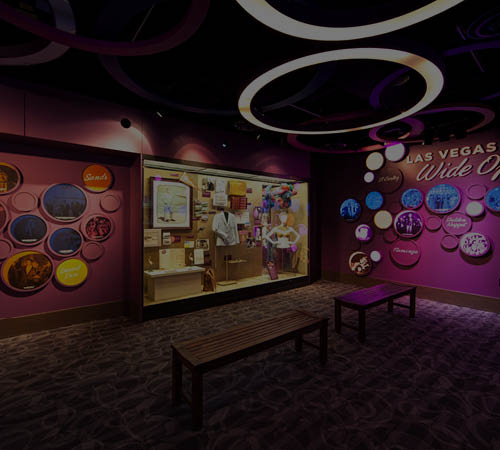TV viewers witnessed verbal sparring between Mickey Cohen and Bobby Kennedy

Mickey Cohen was outrageous, brazen, cunning, and dangerous. He lived his life in the headlines as Hollywood’s darkest celebrity. By the time of his initial face-off with Bobby Kennedy in 1959, he had survived a dozen assassination attempts, done prison time for tax evasion, and controlled law enforcement, politicians, and reporters. A snotty rich boy like RFK did not intimidate him. Learn about their first encounter in this excerpt from my book, Mickey Cohen: The Life and Crimes of L.A.’s Notorious Mobster.
In March 1959, Mickey Cohen flew to Washington, D.C. He had been subpoenaed to testify before Senator John L. McClelland’s high-profile committee investigating labor racketeering and criminal corruption and infiltration of businesses by the Mob. Officially called the United States Senate Select Committee on Improper Activities in Labor and Management, the McClelland hearings were intended to be Kefauver redux. With a special focus on the Teamsters Union, the committee was first active from 1957 to 1960. Unlike his testimony before the Kefauver Committee, this time Mickey’s appearance was televised.
The committee’s chief counsel was Robert F. Kennedy. Born in 1925, the Harvard-educated attorney was a scion of one of the most prominent Irish-Catholic families in the country. John F. “Honey Fitz” Fitzgerald, his maternal grandfather, had been the mayor of Boston. His father, Joseph P. Kennedy Sr., the driven son of a saloon-keeper, made fortunes in stock speculation, Hollywood studios, real estate, and allegedly high-end bootlegging. A power in Democratic politics, Joe Kennedy was appointed the first head of the Securities and Exchange Commission by President Franklin Roosevelt, where he served briefly; afterward he became a highly controversial ambassador to Great Britain.
For all the great achievements, there was much talk that Joe Kennedy’s practices and connections were often less than savory. In the late 1920s, silent film legend Gloria Swanson became his secret lover and business associate. She wrote in her autobiography, Swanson on Swanson, “Joseph Kennedy had taken over my entire life, and I trusted him implicitly to make the most of it . . . When Joseph Kennedy left California, he claimed to have cleared millions in motion pictures, and to have made me financially independent . . . the second part of the claim, the part about me, was not true.” Left in extreme financial peril after their business partnership failed, Swanson’s accountant told her more unfortunate news: It was she who had paid for extravagant gifts Kennedy gave to her and others.
More of Joe Kennedy’s dealings raised red flags. Mobster Frank Costello was a name that often was rumored to be a behind-the-scenes associate. Soon after Prohibition ended, Joe Kennedy acquired the hugely lucrative American distribution rights to Gordon’s Gin and Dewar’s Scotch. Among his real estate interests were shares in Miami’s Hialeah Racetrack, alleged to be an underworld stronghold.
Bobby Kennedy, now in his early thirties, had plans to establish his name. He would do so through nationally televised racket hearings that included appearances by Teamsters boss Jimmy Hoffa, New Orleans Mafioso Carlos Marcello, and Hollywood’s Mickey Cohen. Older brother John F. Kennedy, junior senator from Massachusetts, sat on the McClelland Committee, but the hero of the headline-making hearings would be Chief Counsel Robert F. Kennedy.
Capitol Hill, March 24, 1959: RFK, the privileged son from the tree-lined boulevards of Brookline, Bronxville, and Palm Beach, faced off with the brazen Sunset Strip Mob boss, who still maintained a tight grip on the streets of Los Angeles.
After diminutive New Orleans Mafia leader Carlos Marcello finished his testimony, another tough little man followed, in the person of gum-chomping Mickey Cohen. Bobby Kennedy aggressively pressed and prodded the West Coast gang boss, grilling him about muscling in on L.A. and Orange County labor rackets and his specific role in a feud between two cigarette vending machine companies.
Cohen, the courtroom veteran, repeatedly invoked the Fifth Amendment of the Constitution. Time after time Mickey answered each question, “I respectfully decline to answer on the grounds it may tend to incriminate me.”
With the intention of getting a rise from the mercurial Mr. Cohen, Kennedy posed the query, “What does it mean to have someone’s lights put out?”
Always seeking what came naturally, a laugh, and with it the audience’s empathy, Cohen replied, “Lookit, I dunno what you’re talking about, I’m not an electrician . . . I got nuthin’ to do with electricity.”
Incensed by Cohen’s mockery, Robert Kennedy leaped toward the notorious Angeleno as if to strike him. Senator McClelland quickly grabbed his counsel by the sleeve, forcing him to cool down. But Kennedy could not countenance being derided by the contemptuous California mobster.
By the time the hearings were over, Bobby Kennedy had become a national figure. He had also created a personal enemies list: Jimmy Hoffa, Carlos Marcello, and Mickey Cohen.
Courtesy of Tere Tereba and ECW Press. Copyright 2012 by Tere Tereba. All Rights Reserved.
Tereba will be signing copies of her book from 1-5 p.m. Saturday, March 14, in The Mob Museum’s retail store.
Feedback or questions? Email blog@themobmuseum.org





